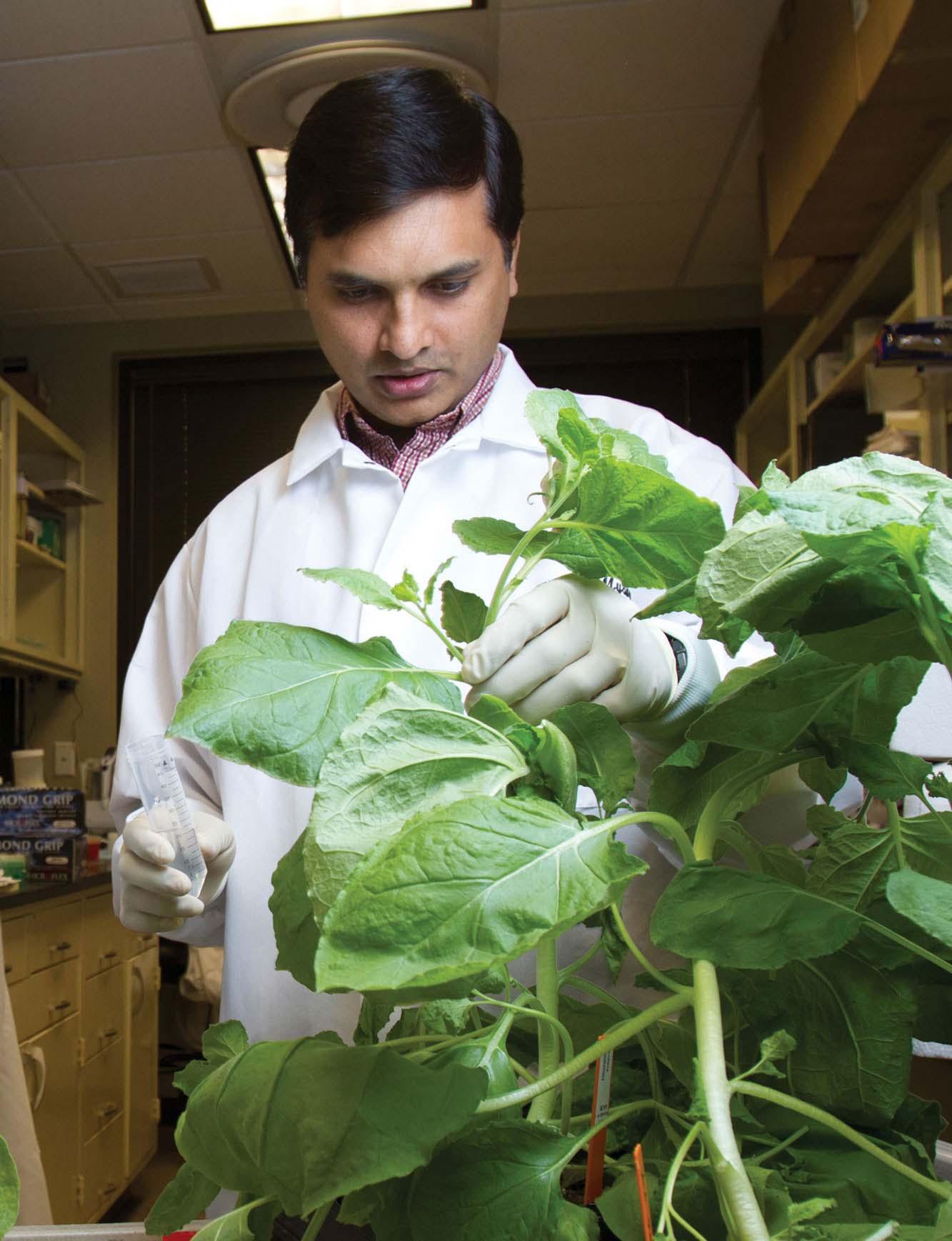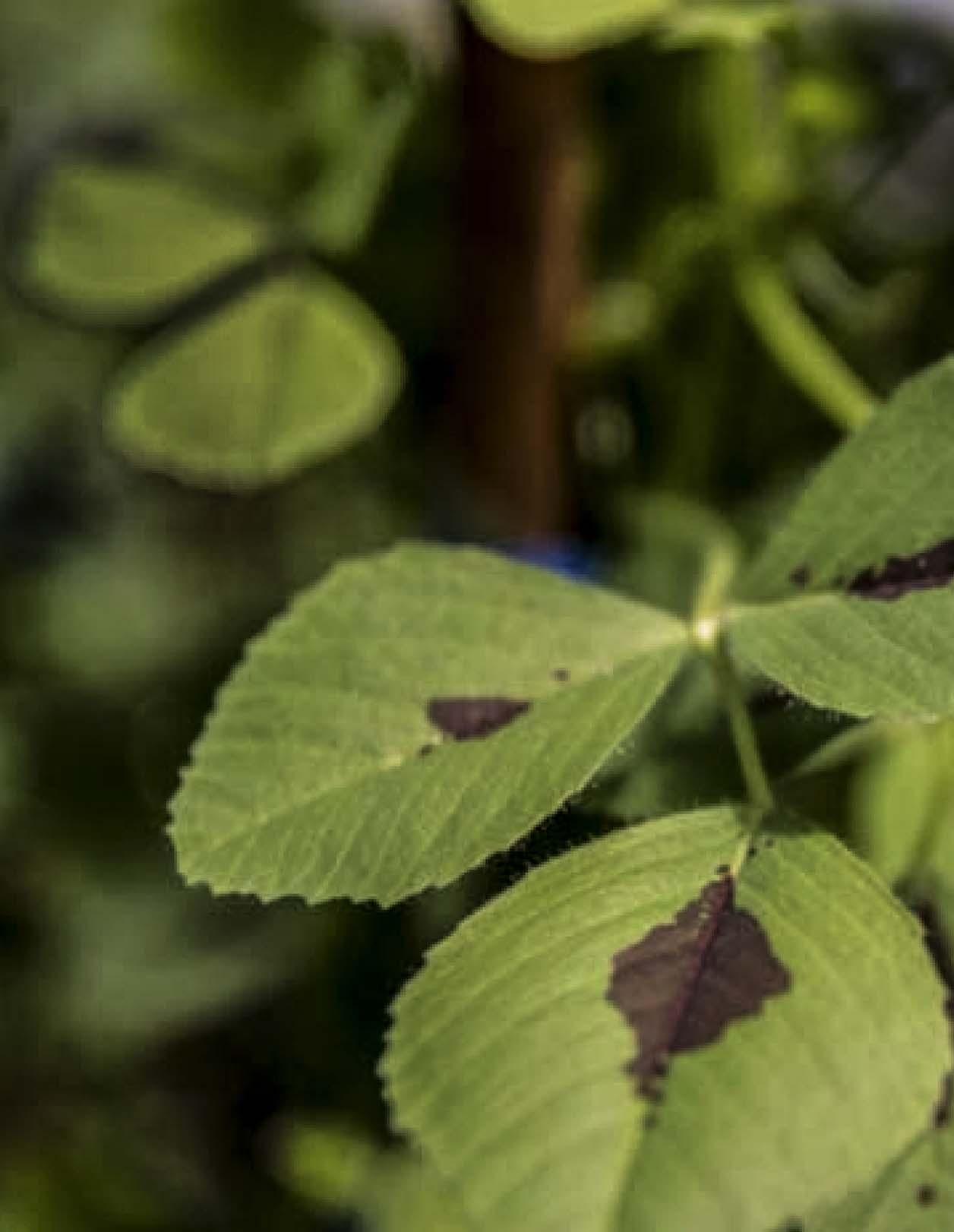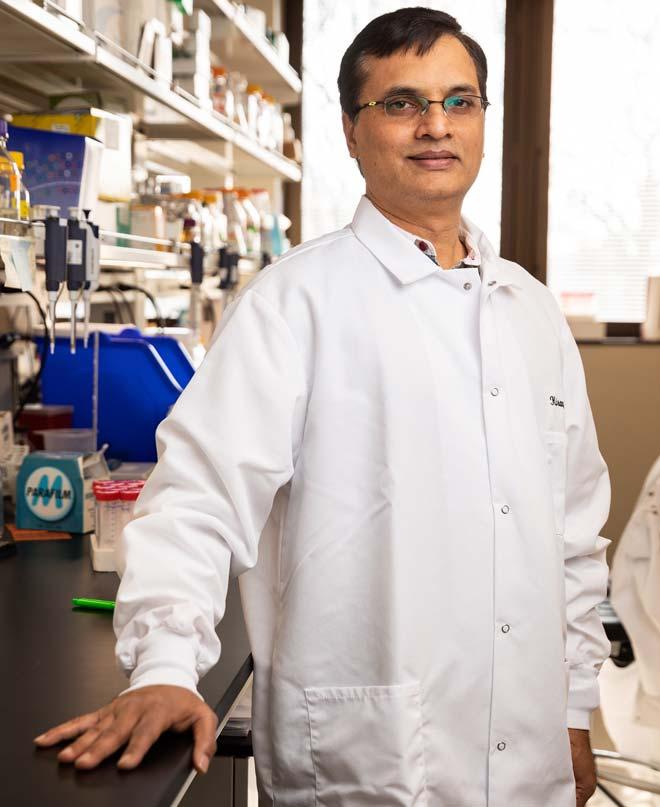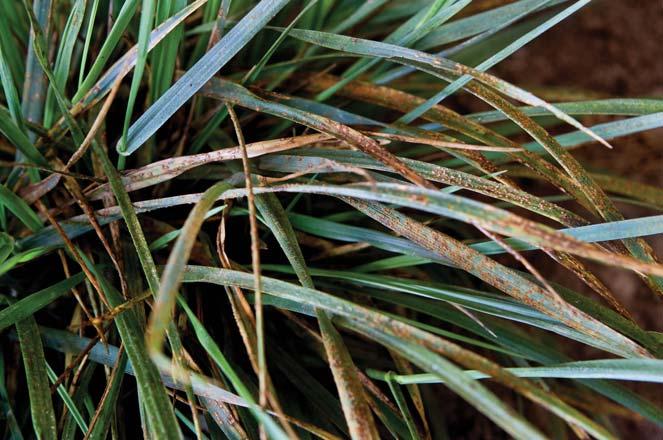
3 minute read
Stress-Free Plants
By NATASA MILAS
Fulbright-Nehru Scholar Kirankumar Mysore conducts research on reducing stress in plants, to avoid losses in food production.
Advertisement
Stress is not just a human phenomenon; plants and crops can suffer from stress too, due to various biotic and abiotic factors like diseases and droughts. In fact, stress can seriously affect plant growth, which can have severe implications further down the line and lead to losses in food production. With the world’s growing population, there is a need to increase food production. One significant way to do this is to find ways to reduce stress in plants. Kirankumar Mysore, a professor at the Noble Research Institute, a nonprofit agricultural research organization in Oklahoma, focuses precisely on this issue by studying not only the varieties of stress that plants may experience, but also their effects and the implementation of mitigating factors. Mysore is a Fulbright-Nehru Academic and Professional Excellence Scholar, who has been collaborating with the University of Agricultural Sciences, Bengaluru, on how to engineer plants for multi-stress tolerance. Mysore was recently named a fellow with the American Association for the Advancement of Science (AAAS) for his contributions to the field of molecular plant-microbe interactions, particularly in the area of non-host resistance and for developing genetic resources for plant functional genomics.
Excerpts from an interview with Mysore.

Medicago truncatula, a legume model species used to assist the lab’s breeding programs for enhanced tolerance or resistance to abiotic and biotic stresses.
Courtesy Noble Research Institute
Your work focuses on studying stress in plants. How do plants get “stressed”?
Plants can experience two kinds of stresses, called biotic stress and abiotic stress. Biotic stress is caused by living organisms, such as bacteria, fungi, oomycetes, viruses, insects, and parasitic animals and plants. These organisms can infect plants to draw plant-produced nutrients, thus causing stress on plants. These stresses can significantly reduce crop yield and, sometimes, they can kill the plant.
Abiotic stresses are caused by non-living factors, such as heat, cold, excess water, drought, salinity, mineral toxicity, and lack of nutrients and minerals. These stresses can affect plant growth and development, causing significant reductions in crop yield.
Some of these stresses (biotic and/or abiotic) can co-exist, increasing the overall magnitude of the stress on plants.
Could you tell us about your research projects at the Noble Research Institute? Has the coronavirus pandemic affected your work in any way?
My research projects in the lab mainly focus on understanding how plants defend themselves against pathogens. In addition to this, my lab has developed genetic and genomic resources in model plants, such as Medicago truncatula and Brachypodium distachyon.
The COVID-19 pandemic has definitely affected my work. My lab was shut down for a couple of months, but is currently up and running at a reduced capacity. Our research productivity has gone down significantly. More importantly, my collaborative project with the University of Agricultural Sciences, Bengaluru, has been affected since I could not fulfill the scheduled visit this year.

Kirankumar Mysore’s projects in the Noble Research Institute lab mainly focus on understanding how plants defend themselves against pathogens.
Courtesy Noble Research Institute
How has been your experience as a Fulbright-Nehru Academic and Professional Excellence Scholar?
Even though I have finished only one out of the three segments of my scholar program, my experience has been excellent so far. I had the opportunity to meet many researchers at the university and gained knowledge about Indian agricultural research. This may open up new collaborations in the future. I also had the opportunity to meet and advise several graduate and undergraduate students regarding their research and careers.
Could you tell us about your collaboration with the University of Agricultural Sciences and your research to help engineer plants for multi-stress tolerance?
I’ve had a long-lasting collaboration with the University of Agricultural Sciences, Bengaluru. As I mentioned, research in my lab mainly focuses on plant biotic stress tolerance. On the contrary, the research of my collaborator, Dr. Udayakumar, focuses on abiotic stress tolerance. Both biotic and abiotic stress responses share some common pathways. Better understanding of these common pathways is critical to engineer plants for multi-stress tolerance. Our expertise and research interests complement well to achieve the goal of engineering multi-stress tolerant plants.
What are your future projects?
Most of the current projects in my lab have been focused on basic research in model plants. My future projects will aim to translate the basic findings that we have discovered to economically important crop plants. Some of the crops that we would like to target include rice, soybean and forage crops such as alfalfa and wheat. My ultimate goal is to develop multi-stress tolerant crops.
Natasa Milas is a freelance writer based in New York City.

A switchgrass plant covered in rust, a fungal pathogen that impacts key crops worldwide. Rust remains the target of Kirankumar Mysore’s nonhost resistance work.
Courtesy Noble Research Institute










